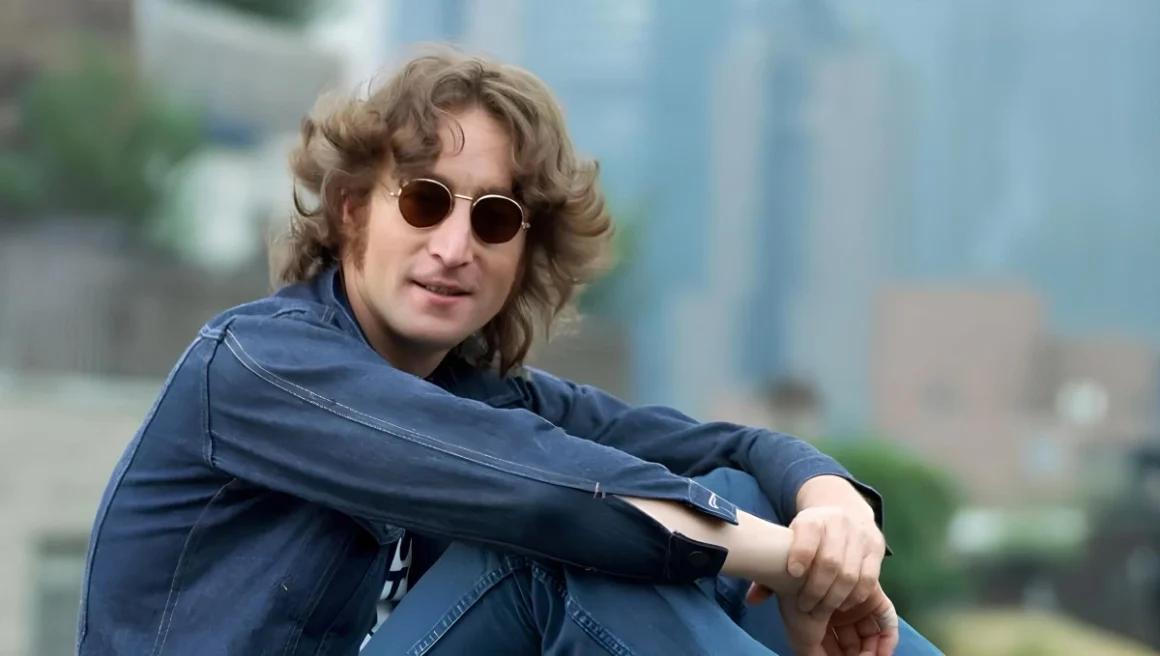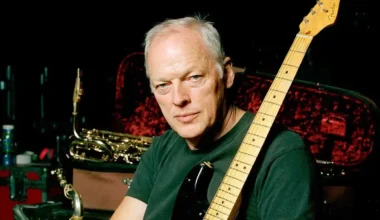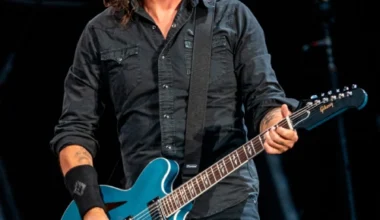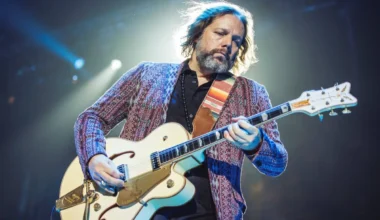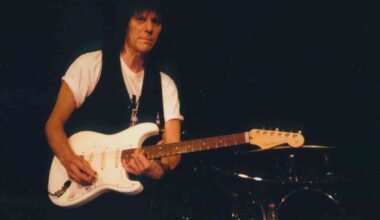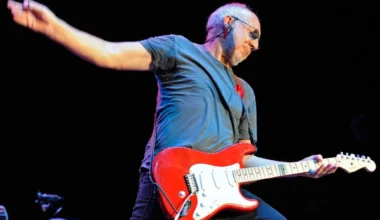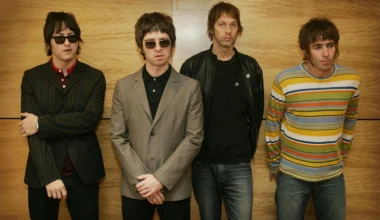On December 8, 1980, terrible news broke globally, disrupting radio and television broadcasts. After learning of the incident while attending an NFL football game, Howard Cosell, an ABC sports announcer, verified that “an unspeakable tragedy” had taken place. According to Cosell, John Lennon was “the most famous perhaps of all of The Beatles” and had been shot and killed outside of his apartment building.
When the police arrived, the culprit was standing calmly outside Lennon’s apartment in the Dakota Building in New York, holding a copy of The Catcher in the Rye. Authorities captured him unarmed, and he offered no resistance.
Even in the final photo ever taken of the lead singer and composer of The Beatles, Lennon’s killer was seen walking with him to a recording session. Paul Goresh, the photographer, captured Lennon autograph a Double Fantasy record for his soon-to-be killer. Then, with his killer’s eyes locked on him, Lennon posed the cryptic question, “Is that all?”
When Lennon and Yoko Ono arrived back at the Dakota late that evening, the assassin opened the front gate. He fired two rounds into Lennon’s back.
During eight hours of questioning by the NYPD at a Manhattan police station, the offender never denied his actions. After that, authorities placed him under detention remand for a mental health assessment.
Mark David Chapman, a 25-year-old Honolulu, Hawaii resident, was the man who had traveled to New York specifically to assassinate John Lennon. He had already admitted to his wife that, during several trips to New York over several months, this goal had turned into an obsession. Sadly, neither she nor any other mental health expert intervened to stop Chapman from achieving his goal.
Mark Chapman wanted to kill John Lennon, but why?
Five of the six expert witnesses testifying during Chapman’s murder trial for Lennon identified him as having paranoid schizophrenia. Later, in a 1992 interview with Larry King, Chapman recalled how, just before the murder, he heard a voice in his head ordering him to “do it.” Execute it. Execute it. That story appears to support the professional diagnosis of his condition.
His legal team argued that he should enter a guilty plea because of this, but he refused. They said he had “received the word from God” that he should instead. He had just read a paragraph from The Catcher in the Rye. It was the book he was carrying the night of the murder. He did so in response to questions about his motivations for the crime while he was being sentenced.
As he would later tell King, Chapman purchased that copy of the book on the morning of the murder. “From Holden Caulfield, the protagonist of the novel,” is how he signed it. And penned “This is my statement” underneath it.
These references to the book in connection with his murderous deed appeared to be a distorted belief. He thought he was in some way shielding the little children at the time from Lennon’s atheism. Holden Caulfield, who regarded himself as “the catcher in the rye,” imagined his salvation in rescuing his younger sister.
Chapman became a born-again Christian after becoming a devoted follower of the Beatles. Lennon’s 1966 claim that his band was “more popular than Jesus” infuriated him. The line from his song “God,” which refers to a monotheistic supreme deity as “a concept by which we measure our pain,” also angered him.
Despite disagreements over religion, this portrayal might have turned out to be a sad irony. Chapman used God as a form of self-medication and justification for cold-blooded murder.
The jury in Chapman’s trial learned that, in addition to his religious and literary objectives, he allegedly intended to murder other celebrities and had a hit list. This psychologically ill young guy may have had fame as a secondary motivation, at the very least.
Regardless of Chapman’s motivations at the time, the clearest explanation for his death seems to come from John Lennon. In a 1965 interview, John Lennon ominously predicted that he would “be popped off by some loony” when questioned about The Beatles’ future. Unfortunately, he was right.

